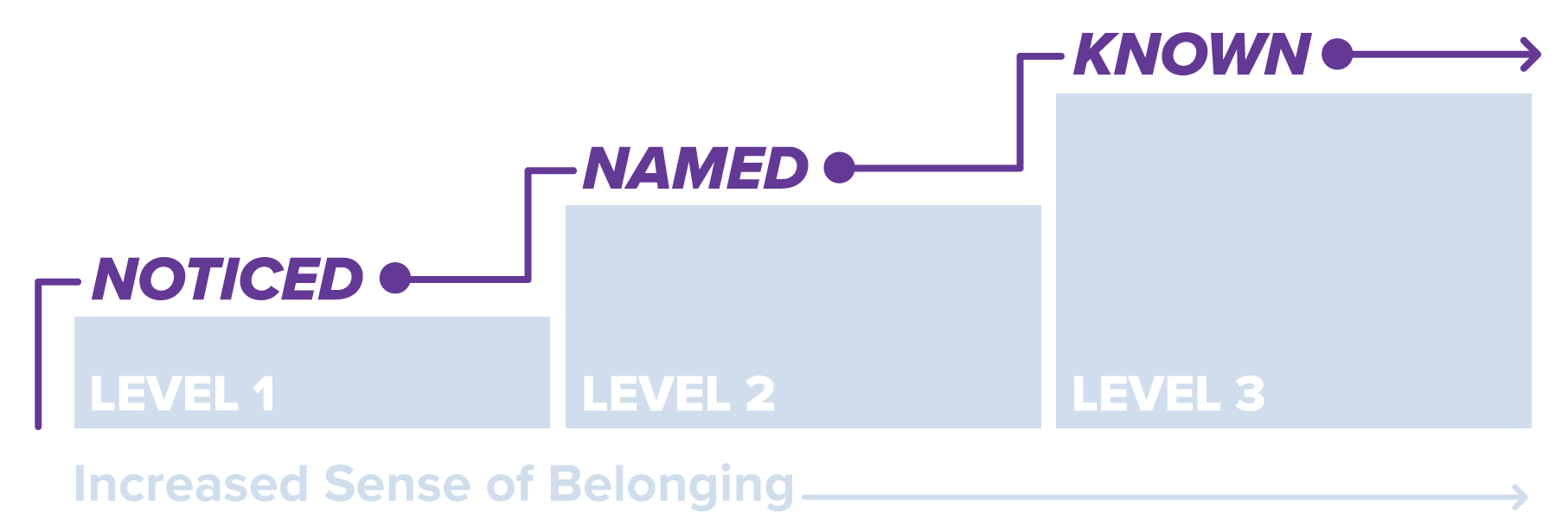
Connection Matters for Mental Health
“So I went to church with my family growing up, we went to a Christian Church and I think having that group of people, just like being connected to more people in general, regardless of the religion part, I think was helpful and feeling like we were part of a community.”
—Angie, 24
The data for this year’s report show that Gen Z’s religious and spiritual lives help them feel connected – and being connected improves their mental health. Some young people, like Angie, benefit just from the sense of community faith traditions can offer, while others fare better because of the meaningful relationships they build. Our data show that connection is created by fostering a sense of belonging. As a young person moves from initially joining an organization or group to experiencing real belonging within it, three distinct feelings surface: feeling noticed, feeling named, and feeling known. We refer to this pattern of moving from noticed to named to known as the Belongingness Process.

- I am noticed. The perception of being noticed by another—being seen or acknowledged, even in the most straightforward ways—is the initial step toward a sense of belonging. Our data show that those young people who are currently connected to a faith community feel noticed. Sixty-three percent of young people surveyed say they feel acknowledged in their community, 72 % say someone says hello to them while they’re at their place of worship, and 68% say they don’t feel invisible there. Simply being noticed can contribute to mental wellness.
- I am named. The use of a person’s name triggers an immediate connection. The first and most obvious way to ensure someone feels named is simply to ensure that you know their name and that you are using it correctly, including with accurate pronunciation. Of the young people we surveyed who are currently connected to a faith community, 70 % say the people in their faith community remember their name, and 66 % say that people make a genuine effort to know who they are. If you don’t know a person’s name, pronouns, or pronunciation, take the time to ask. Taking this simple action helps to demonstrates a commitment to their participation in the community, and feeling included helps to bolster mental health.
- I am known. Belongingness reaches a new level when a person feels known. This depth of belongingness, this sense of feeling known, builds on being noticed and named but adds the all-important dimension of unreserved acceptance. Sixty-five percent of the young people we surveyed who are currently connected to a faith community say they don’t feel the need to hide who they are at their place of worship, and 66 % say they feel safe to be their full selves there. This kind of acceptance has immeasurable significance as an antidote for loneliness, isolation, and stress. Accepting young people without judgment is an essential condition for deep belongingness.
Creating connection starts with fostering a sense of belonging. To deepen belonging, find ways to move beyond noticing, acknowledging, and accepting toward celebrating the young people in your community. Putting these steps into practice is the start to building the foundation for a mental-health friendly organization!



